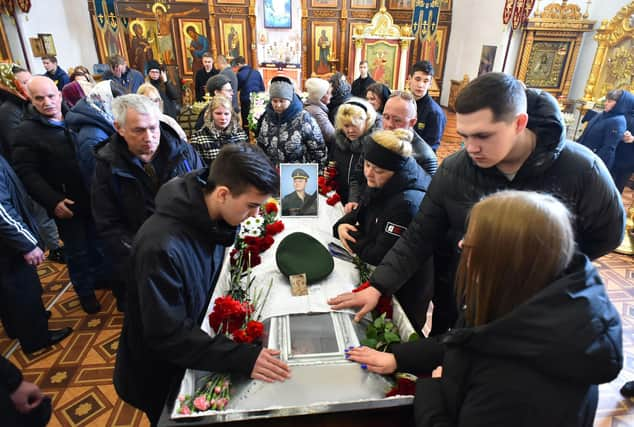Ukraine War: All Quiet on the Western Front is a reminder not to cheer the deaths of Russian soldiers – Kenny MacAskill


As ever, it was evocative and poignant, as poems were read and Floo’ers o’ the Forest was played. Humbling and a privilege to attend.
I’d recently watched the Netflix remake of All Quiet on the Western Front. It was too brutal for my liking and lacked the bleakness of the original black-and-white movie, never mind the far wider imagery provided by reading Erich Maria Remarque’s novel.
Advertisement
Hide AdAdvertisement
Hide AdStill, I wondered who else might have watched it and, like me, had their sympathy drawn to the German soldiers. They’re not the beastly Boche or despicable Hun, but human beings. For those who never have either seen or read the story, it’s set in the First World War on the western front between French and German troops. Many thoughts on Remembrance Day are rightly drawn to that war, even though more recent conflicts provide contemporary sorrow.
Intrigued, I’ve been reading Alexander Watson’s book Ring of Steel about that conflict looked at from a German and Austro-Hungarian perspective. His book’s candid, accepting the latter’s ultimate responsibility and indeed the early savagery by the former in Belgium.
But beyond that there’s great similarity in the actions of the state and the attitudes of people. A rush to the flag for a short and almost jolly war, followed by the realisation of a long and grinding one endured by people at home as much as soldiers on the front. They too grieved for those that were lost and for what?
The minister’s sermon this year referred to the conflict in Ukraine. About 100,000 Russians have died and that has been cheered by some which saddens me. Russia’s to blame and the appalling actions of some of their soldiers should result in prosecutions in international courts.
Some though have no more desire to fight than many on whatever side more than a century ago. Some 100,000 Ukrainians soldiers have also died and atrocities in war are never a one-way street. Besides, we all bleed the same and grief knows no racial boundaries.
It’s why now’s the time for peace in Ukraine before countless more are killed. Ukrainian President Volodymyr Zelensky’s willingness to consider this must be encouraged.
Kenny MacAskill is Alba Party MP for East Lothian
Comments
Want to join the conversation? Please or to comment on this article.
